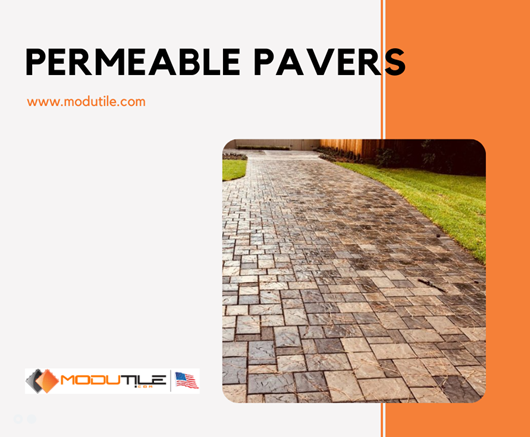Permeable Pavers
Anywhere concrete or pavers are utilised, such as driveways, parking lots, and patios, permeable pavers can be used. Because permeable pavers let extra water drain into the ground or natural soil, they are a great and environmentally friendly option for first-time homeowners. Resin-bound permeable pavement has an aesthetically pleasant appearance and permits water to permeate through it naturally through filtration. Conversely, other types of concrete or paving permit water to run off. Its natural drainage system lets water run off without creating puddles on a large, level surface.
The cost of permeable pavers is cheap, and they are inexpensive, long-lasting, and sustainable. They can be used to make temporary roads, manage erosion, do away with expensive drainage systems, and park on lawns. The ground must be cleared and a layer of rock laid as a foundation before laying permeable pavers. The grids are then arranged. One person can do them because they are sufficiently light. Once these grids are in place and linked together, they are filled with limestone or gravel. When the grids are full, they are sufficiently sturdy to support practically any kind of equipment or vehicle.
If more structural support is required, our interlocking permeable pavers are meant to be used in place of concrete or other solid surfaces. In particular, interlocking pavers allow water to go from the surface below the paver to below it, increasing ground support for foot and vehicle movement. The characteristics of permeable pavers aid in limiting surface water runoff. When the pavers are put with an angled rock sub-base, they can help remove any standing surface water. They have the structural stability to avoid rutting even on grassy or gravel surfaces. Additionally, the pavers will lessen material runoff when used in conjunction with gravel.
